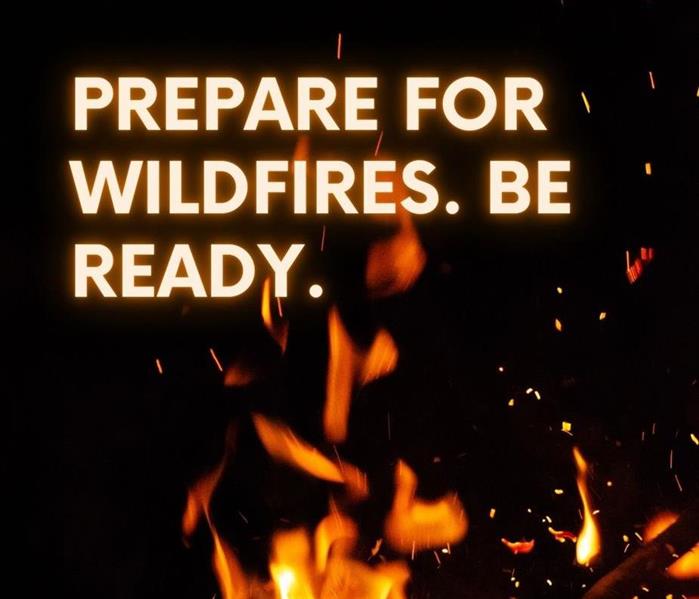7 Essential Steps to Prepare for Wildfires: Protecting Your Home and Family
3/30/2023 (Permalink)
Wildfires are a natural phenomenon that have existed for millions of years. However, with climate change, human activity, and urbanization, wildfires have become more frequent and destructive. The devastating effects of wildfires can be seen all over the world, from Australia to California. As such, it is important to be prepared for wildfires and have a plan in place to protect your family and property. In this blog, we will discuss some key steps to help you prepare for wildfires.
Create a wildfire plan
The first step in preparing for a wildfire is to create a wildfire plan. This plan should outline what you will do in the event of a wildfire, including evacuation routes, communication plans, and emergency supplies. Make sure that everyone in your household is aware of the plan and knows what to do in case of an emergency. You should also keep a copy of the plan in a safe place, such as a fireproof safe or cloud storage.
Maintain your property
The second step is to maintain your property to reduce the risk of wildfires. This includes keeping your lawn and garden well-maintained, removing dead or dry vegetation, and creating a defensible space around your property. A defensible space is an area around your home that has been cleared of flammable materials and vegetation, which can help slow the spread of a wildfire and give firefighters a place to defend your property.
Prepare an emergency kit
The third step is to prepare an emergency kit. This kit should include essential items such as food, water, and first aid supplies, as well as any medications, important documents, and other items that you may need in case of an emergency. Keep the kit in a readily accessible location, such as in your car or by the front door, so that you can quickly grab it if you need to evacuate.
Stay informed
The fourth step is to stay informed about wildfires in your area. This includes signing up for local alerts and notifications, listening to the news, and checking the National Wildfire Coordinating Group's website for updates. You should also have a battery-powered or hand-cranked radio in your emergency kit to stay informed if the power goes out.
Be ready to evacuate
The fifth step is to be ready to evacuate at a moment's notice. This means having a go-bag packed with essential items, including a change of clothes, toiletries, and any necessary medications. You should also have a plan for how you will evacuate and where you will go, such as to a friend or family member's home, a hotel, or an evacuation center.
Have a backup power source
The sixth step is to have a backup power source. If the power goes out, you may need a generator to power essential items such as your refrigerator, medical equipment, or communication devices. Make sure that you have a generator that is rated for outdoor use and follow all safety precautions when using it.
Have a plan for pets and livestock
The seventh step is to have a plan for your pets and livestock. Make sure that you have carriers or leashes for your pets, as well as enough food and water for them. If you have livestock, you may need to evacuate them to a safe location or have a plan for their care if you need to evacuate without them.
In conclusion, preparing for wildfires is essential to protect your family and property. By creating a wildfire plan, maintaining your property, preparing an emergency kit, staying informed, being ready to evacuate, having a backup power source, and having a plan for pets and livestock, you can be better prepared to deal with the devastating effects of wildfires. Remember to stay calm, follow the advice of local authorities, and evacuate immediately if necessary. Stay safe!



 24/7 Emergency Service
24/7 Emergency Service
